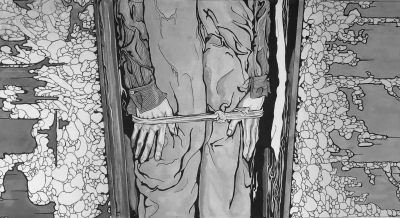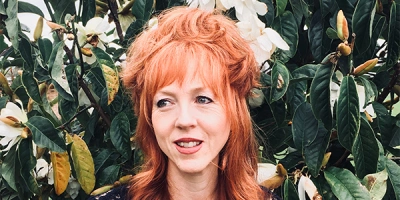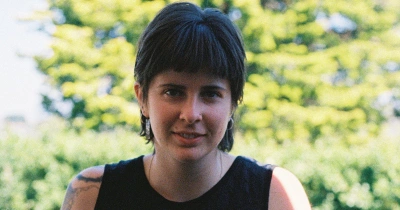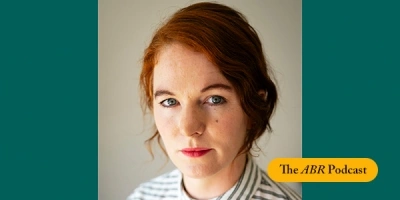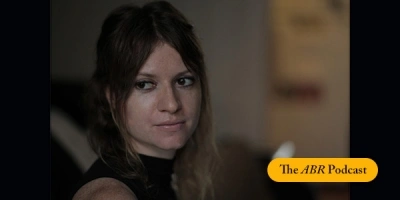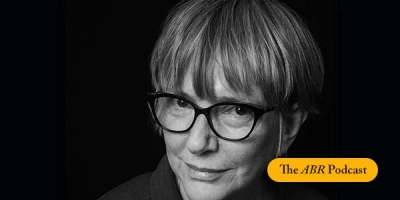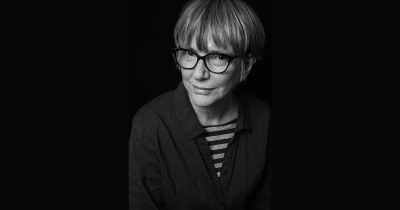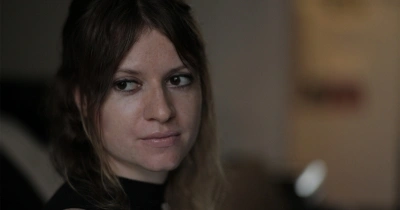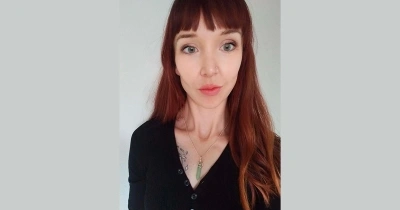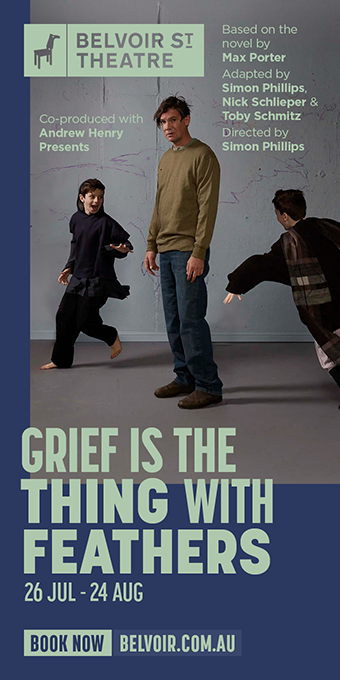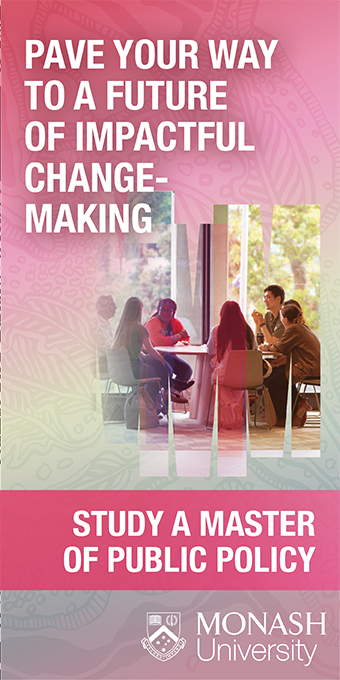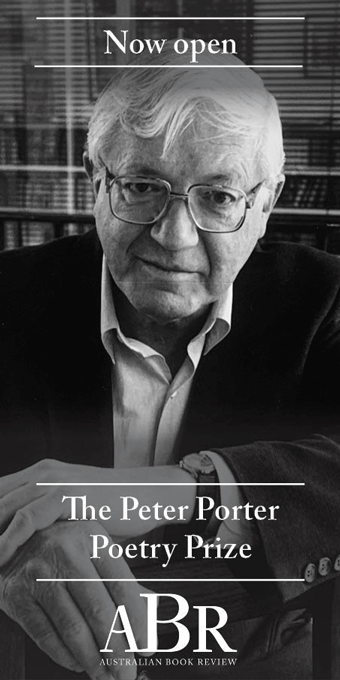Jolley Prize
How many times will I have to exhume you?
You rise again, a winter bulb. White corm of your face blanched as a knuckle, the quivering mycelium of your hair, stirring.
... (read more)1. When you fall, one speaker goes with you. They’ve been daisy-chained around the house, so those on the deck get the same din that’s piped out to the stairwell, a playlist to pound your Docs to. You’re dancing with a vengeance by now, erotic stomps with industrial tread, your hips a counterweight where gravity meets velvet, fingernails raking the air. Someone has spliced in ultra-long cable, so the speaker follows you, to the bottom. But if it’s still singing when it hits, your brain has switched station.
... (read more)Phantom flutes ring in your ears, well past the finish of the music. The kind you get from a migraine or the neurotic howl of cicadas in the summer. The kind that hangs eerily at the back of your neck, a reminder of the thin veil separating real from imagined. The kind that makes your mind chase its own tail. It can’t be (but it is) but it can’t be and so on, into the silence that is not silence. Your father slides around in the back of the car. What slides around in the boot is not really your father but rather a shadow, or an echo or a remembering. Reminds you of shelling peas as a child. Pull out the orbs from between the fleshy green lips, eat the innards until the skin sinks in on itself into a hollowed husk. The body in the boot is just such a vessel, empty now that he has left, just epidermis and bones and irises that will break down into smaller compounds. Organic matter reduced to biology. And in the absence of soul, a peculiar cold sort of smell if a smell can be described like that. Metallic almost, like when you press your head to the concrete as a child and feel the vastness of the earth creep into you.
... (read more)This week on The ABR Podcast we feature a short story from the ABR Archive. The story, ‘A Body of Water’ by Else Fitzgerald, was commended in the 2011 ABR Elizabeth Jolley Short Story prize. It opens in the desolate, quiet space of a former steel town on the Franklin River. Fitzgerald writes: ‘The town hunkers on the southernmost tip of a cruel spit of land stretching down into the Bite, surrounded by the cold ocean.’ Listen to Else Fitzgerald with ‘A Body of Water’, first published in ABR in 2012 and now part of ABR’s extensive digital archive going back to 1978 – all available to subscribers.
... (read more)On 15 August, Advances and about one hundred lovers of short fiction descended on Gleebooks in Sydney for the announcement of the winner of the 2024 ABR Elizabeth Jolley Short Story Prize. Not since January 2020 had ABR presented a prize ceremony in public. Since then, because of the exigencies of Covid-19 and pesky lockdowns, all our celebrations have happened online, and goodness knows the popularity of online events of this kind has begun to wane, like those Zoom soirées and cocktail parties we endured.
... (read more)This week on the ABR Podcast we conclude our three-episode special on the 2024 ABR Elizabeth Jolley Short Story Prize with the winning story, ‘Pornwald’ by Jill Van Epps. The judges described ‘Pornwald’ as ‘a puzzle that tests the limits of realism with an often riotously deadpan sense of humour’. Jill Van Epps is a writer and filmmaker based in Brooklyn who is completing her first novel. Here is Jill Van Epps with ‘Pornwald’, published in the August issue of ABR.
... (read more)This week on the ABR Podcast, we continue to celebrate the 2024 ABR Elizabeth Jolley Short Story Prize with the second of three episodes featuring the shortlist. This week’s story is ‘M.’ by Shelley Stenhouse. The judges had this to say about ‘M.’: ‘Wittily told, this rollicking tale set in New York City is at once a character study of the garrulous oddball M and a tragicomic portrait of the narrator herself, whose compulsions and choices see her avoiding the everyday joys of her life as a mother.’ Shelley Stenhouse, a New York City-based poet and fiction writer, recently won the Palette Poetry Prize. Listen to ‘M.’, published in the August issue of ABR.
... (read more)At the fellowship lunch after our AA meeting, I’d hear him describing an afternoon sky in Paris, a shaft of shadow on a Tuscany hill. His flat unstoppable narrative was better suited to rambling American suburbs than Europe’s concise landscapes. In the tiny restaurant, we shoved four wobbly tables together, ordered Asian greens, and sat for hours fiddling with our chopsticks and drinking burnt-orange-coloured Thai iced tea. No one but M. talked and no one listened to him. His nervous and joyless verbal traverses were the out-loud equivalent of knee-shaking or leg-swinging. I’d hear occasional individual words: dusk, kindness, playful, accoutrements, heavenly. Make it stop, make it stop, I’d pray (I’d learned to pray in AA), watching his mouth move evenly and continuously like a machine in a factory, punching hole after hole in my day.
... (read more)In the airless beige office she finds ways to kill time. She spins in her taupe chair until she feels faintly nauseous. She flicks through the papers in the greyish filing cabinet. She kicks the nude heel off her left foot and wedges its leather between her big toe and second-biggest toe. She cradles the putty-coloured phone in her elbow and coos to it like it’s a baby, feeling its plastic coldness. Through the half-open blinds, she stares at the signs for other businesses, reading their names out loud. First with an Aussie accent. Then a British one. Affordable Massage. Life Thrift. MRIs R Us. Poke Town. Inlet Market. Peat Bog Tanning. The Dark Fowl.
... (read more)The baby had no name because they couldn’t agree on one. She was twenty-nine, and he was thirty-two, and they were going nowhere, but she fell pregnant. And she thought this might be somewhere she wanted to go with him. Only when it happened did she become aware of this urge, like the unfurling of a moonflower. Some process had taken place inside her in the dark, and much later she saw herself in the light, and knew: This is who I am. But Jack noticed none of this. The baby woke every night – wanting to be fed, held, changed, rocked, carried to the broad sash of sky at the window, all the things any newborn wants – and Jack dragged a blanket to the living room, leaving Mara in the bedroom with the baby. In the morning, Jack would shrug his shoulders: ‘You know I have to be alert for work.’
... (read more)

